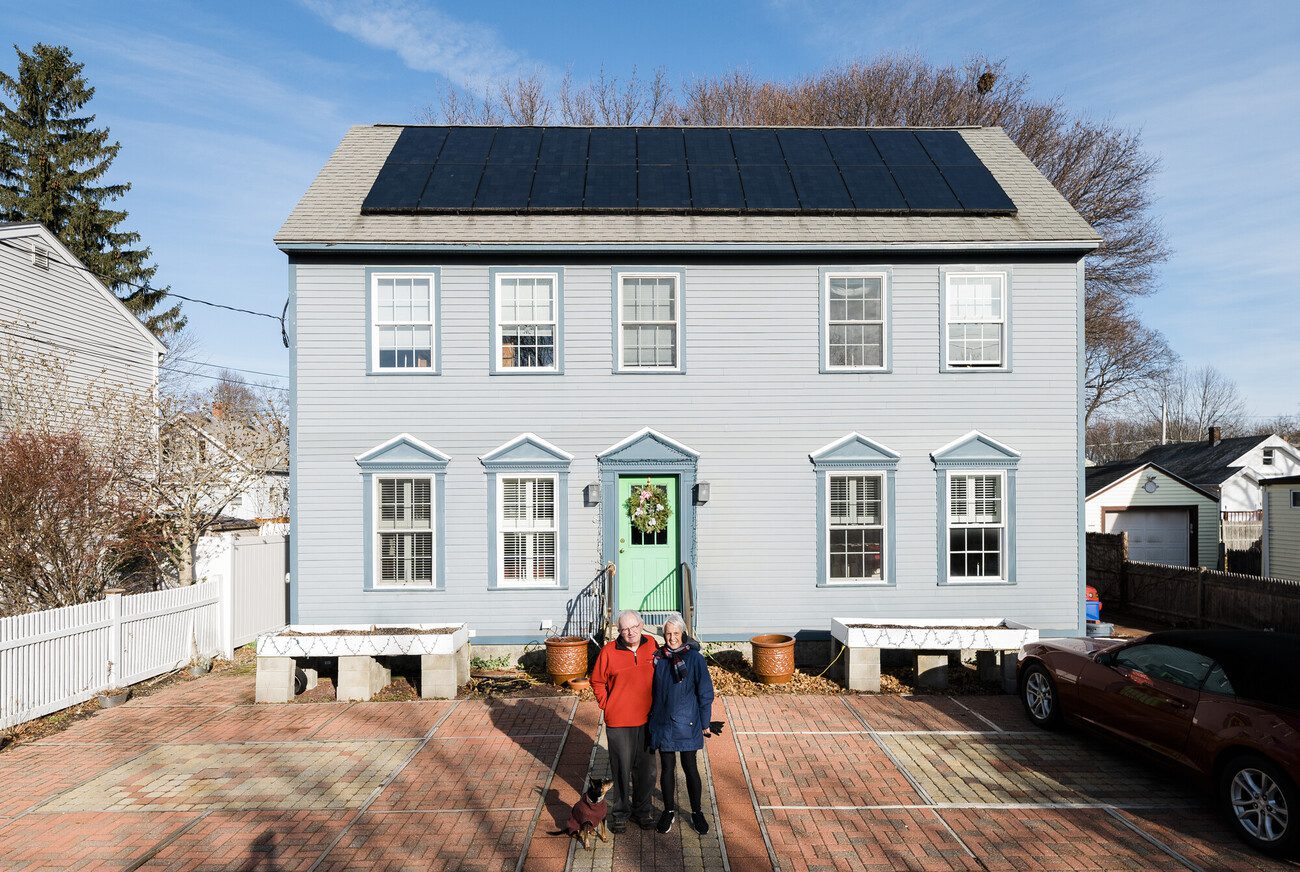PEABODY — Mark Dullea of Peabody has reduced his carbon footprint by 95 percent and eliminated his electric bill. How? By powering his house completely on solar energy.
The endeavor to convert his home to solar power began back in the mid-1970s when he was working as a principal planner in Cambridge. One day, he heard about a meeting of the New England Solar Energy Association at the MIT Faculty Club.
“So I went down just out of curiosity and it was very interesting and I kind of got hooked on the idea that solar makes a lot of sense,” Dullea said. “Not that there was any discussion of climate or anything at all like that. It was just this is a really cool way to make electricity.”
Since then, the field of solar power has grown significantly. The solar panels that he and his wife, Donna Qualters, have installed on their roof now convert 20 percent of the energy they absorb into electricity, compared to 5 to 7 percent when he first started getting into solar power.
The solar panel system on top of his house is a 5.5 kilowatt system. They were installed in 2011 and have amassed 80,000 kilowatt hours of solar energy.
“The house is full south, which is ideal, and the roof pitch is about 45 degrees, which is ideal,” Dullea said. “So the pitch and the orientation is absolutely as good as you can get. There’s no trees blocking it, there’s no building shadowing it or anything like that.”
Back then Dullea and his wife paid around $35,000 for their system, but now it costs less than that, somewhere in the $20,000 area, he said. They’ve earned back their initial investment plus more, through special programs in Massachusetts.
“We got the 30 percent investment tax credit, that’s a federal tax credit … so a $30k investment tax credit was worth $11 [or] $12k right there in the first year,” Dullea said. “We also get what are called SREC payments, solar renewable energy certificates … And what happens is you have the right to sell off on a kilowatt-hour basis in thousands.”
The SREC program lasts for 10 years, which Dullea just finished.
“We were getting about $250 a month out of that,” Dullea said. “Maybe $3k a year or something like that for 10 years, so there’s 30k right there.”
There is also another tax credit he earns under the Solar Massachusetts Renewable Target (SMART) Program. This program goes on indefinitely, he said.
Along with electricity, the heating and cooling for his house is also powered by solar, using heat pumps.
“A heat pump is a reversible air conditioner,” Dullea said. “Basically, it’s a reversible air conditioner in the summer. It works like a normal air conditioner. It runs a refrigerant through a loop, which absorbs heat from the house and dumps it outside. In the winter, it does just the opposite. It runs the refrigerant through a loop which absorbs warmth from what feels like cold air and it dumps cold air.”
The only parts of Dullea’s home that aren’t run by solar power are his gas stove and fireplace. They use the fireplace only a few times a year.
Over the years, the panels have briefly failed the house only twice — both times because of squirrels.
“We had two squirrel attacks over the years. We had one about five years ago where squirrels got under the panels,” Dullea said. “Squirrels went under there and they liked to chew things because their teeth grow continuously so they always have to file their teeth so they might as well chew our wires on our solar paneling.”
The next time the squirrels got in, they ate their way through the roof — even though Dullea had installed a perimeter guard around the panels.
“The squirrels had managed to breach the perimeter guard that was put up because it was put up badly, and not only did some damage to the panels, but ate their way through not just the shingles … and had a nest hanging down into the attic,” Dullea said.
They were able to have the roof and panels fixed and installed a new perimeter guard. Since then, the system has been free from squirrel attacks, and the panels have never failed to produce electricity for them.
Dullea, Qualters and their dog Molly have lived their lives with no electricity bill and almost no carbon footprint for 11 years and have no plans to change that.

